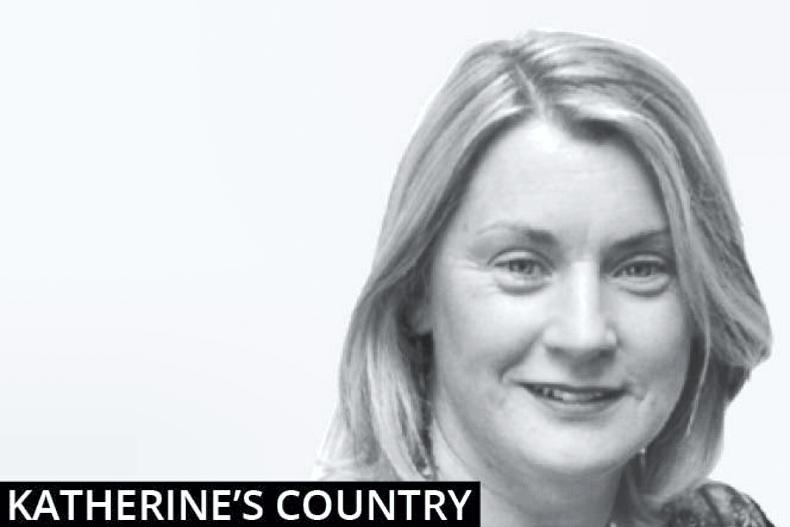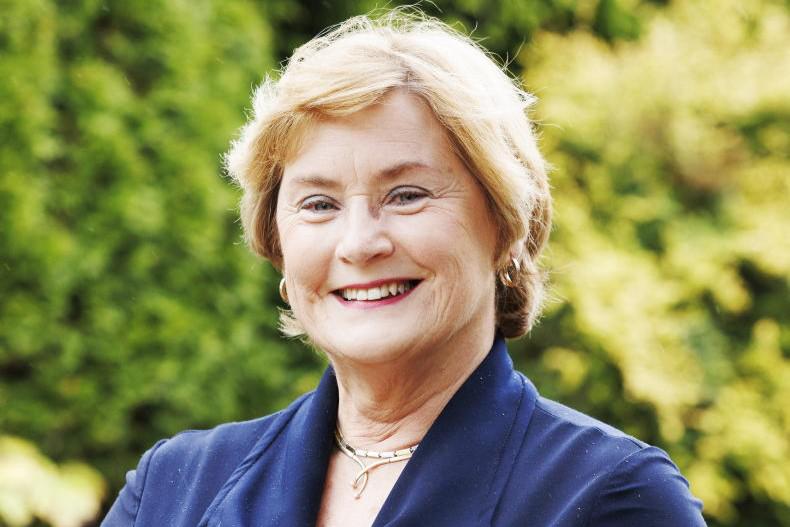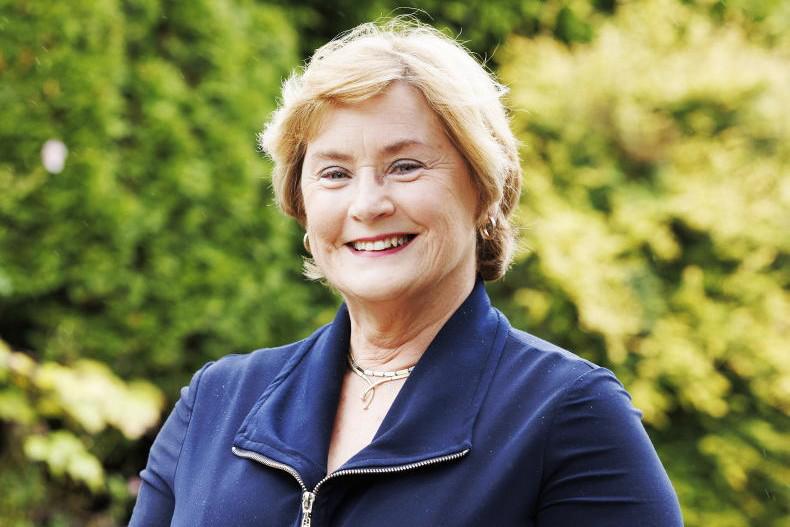I was agitated in the days leading up to my planned surgery to remove the tumour from under my arm. I was feeling well. I was back weeding for short periods in the garden and I dreaded my recovery and suffering a setback.
On the day appointed, Julie and Dave were up early to wish me luck. The bag was packed and ready. Tim dropped me to Cork University Hospital at 7.20am. We didn’t talk much on the way in; both feeling the tension of the unknown impact of this next step.
“Text me a number to ring to find out when you are over it,” Tim said. I promised I would.
I had done pre-admission tests 10 days previously. It was efficient and complete. It would speed up the process on the day of surgery.
Thankfully, it did just that. I walked through the door of CUH without looking back, sanitised my hands and headed for the admissions door. I took a number. I sat. Very quickly, I was called. A few details were cross-checked. I was handed my paperwork and name tags and sent on my way to the day ward where I arrived at 7.30am.
The procedure
My consultant surgeon was Professor Jim Clover. Very quickly, I was being processed again. Dr Rachel Enright, senior registrar on the team, came to speak to me about the procedure.
The tumour would be excised and she discussed the repercussions of that. She put a big arrow on my left shoulder for the surgeon to see. I was getting myself organised when a nurse came in to say that I was next as the first patient, a child, wasn’t quite organised.
I hurriedly asked the nurse manager who was to bring me to theatre and for a number for Tim to ring.
She asked me if, by any chance, I was the lady who wrote in the Irish Farmers Journal. Honestly, our lovely readers are everywhere. She said: “I’ll ring Tim for you as soon as you’re in recovery.”
Her name was Joan Scanlan and she put me at ease straight away. The number for Tim had been on my mind and now it had been dealt with. Patient care has many faces and her kind gesture meant I went into theatre relaxed.
I then met the anaesthetist and he wondered if he’d qualify to be called a farmer with three ducks and two chickens. While the staff kept me amused, Prof Clover arrived and I slipped off to sleep.
I had to return to the dressing clinic in CUH a couple of times. Each time, I had to endure three hours of queuing. This is where you see the difficulties in the health system. There are not enough doctors and nurses to get through the huge number of people attending.
Surgery over
I woke up later on in ward 2A – the five-bed trauma ward. Immediately, I recognised that my head was clear, which is an amazing feeling after the experience of chemotherapy brain fogginess. You don’t realise it when you’re going through it. Pain can be dealt with by using painkillers.
I spent four nights in hospital and I got the best of care from the staff everywhere. Many of the nurses and support staff are from all over the world. It must be tough for them to navigate a career in a new country.
Communication is difficult and it is important for patients to be tolerant. We use all kinds of funny phrases in our everyday English. For example, I was uncomfortable in the bed and wanted it raised up, so as a nurse passed I said: “You’d never raise up my bed, please?”
She looked at me, puzzled, saying: “I’d never?” I rephrased saying: “Can you raise up my bed please?” She was by my side in a flash. I was sorry that I’d confused her. The tone of speaking can also be difficult to understand. A person can sound curt and yet be very kind.
I went home with a drain from my wound in place. I had to return to the dressing clinic in CUH a couple of times. Each time, I had to endure three hours of queuing. This is where you see the difficulties in the health system. There are not enough doctors and nurses to get through the huge number of people attending. Patients are upset. I was upset and tired. Still, the care is excellent.
On my last visit, I met a nurse called Louise. She took out my drain and dressed my wound. I can honestly say that I never felt a thing, such was her competence. I am recovering well from the surgery and I have good movement in my arm.
Read more
Family rituals and the pull of an invisible string
Craughill barn birthday celebrations
I was agitated in the days leading up to my planned surgery to remove the tumour from under my arm. I was feeling well. I was back weeding for short periods in the garden and I dreaded my recovery and suffering a setback.
On the day appointed, Julie and Dave were up early to wish me luck. The bag was packed and ready. Tim dropped me to Cork University Hospital at 7.20am. We didn’t talk much on the way in; both feeling the tension of the unknown impact of this next step.
“Text me a number to ring to find out when you are over it,” Tim said. I promised I would.
I had done pre-admission tests 10 days previously. It was efficient and complete. It would speed up the process on the day of surgery.
Thankfully, it did just that. I walked through the door of CUH without looking back, sanitised my hands and headed for the admissions door. I took a number. I sat. Very quickly, I was called. A few details were cross-checked. I was handed my paperwork and name tags and sent on my way to the day ward where I arrived at 7.30am.
The procedure
My consultant surgeon was Professor Jim Clover. Very quickly, I was being processed again. Dr Rachel Enright, senior registrar on the team, came to speak to me about the procedure.
The tumour would be excised and she discussed the repercussions of that. She put a big arrow on my left shoulder for the surgeon to see. I was getting myself organised when a nurse came in to say that I was next as the first patient, a child, wasn’t quite organised.
I hurriedly asked the nurse manager who was to bring me to theatre and for a number for Tim to ring.
She asked me if, by any chance, I was the lady who wrote in the Irish Farmers Journal. Honestly, our lovely readers are everywhere. She said: “I’ll ring Tim for you as soon as you’re in recovery.”
Her name was Joan Scanlan and she put me at ease straight away. The number for Tim had been on my mind and now it had been dealt with. Patient care has many faces and her kind gesture meant I went into theatre relaxed.
I then met the anaesthetist and he wondered if he’d qualify to be called a farmer with three ducks and two chickens. While the staff kept me amused, Prof Clover arrived and I slipped off to sleep.
I had to return to the dressing clinic in CUH a couple of times. Each time, I had to endure three hours of queuing. This is where you see the difficulties in the health system. There are not enough doctors and nurses to get through the huge number of people attending.
Surgery over
I woke up later on in ward 2A – the five-bed trauma ward. Immediately, I recognised that my head was clear, which is an amazing feeling after the experience of chemotherapy brain fogginess. You don’t realise it when you’re going through it. Pain can be dealt with by using painkillers.
I spent four nights in hospital and I got the best of care from the staff everywhere. Many of the nurses and support staff are from all over the world. It must be tough for them to navigate a career in a new country.
Communication is difficult and it is important for patients to be tolerant. We use all kinds of funny phrases in our everyday English. For example, I was uncomfortable in the bed and wanted it raised up, so as a nurse passed I said: “You’d never raise up my bed, please?”
She looked at me, puzzled, saying: “I’d never?” I rephrased saying: “Can you raise up my bed please?” She was by my side in a flash. I was sorry that I’d confused her. The tone of speaking can also be difficult to understand. A person can sound curt and yet be very kind.
I went home with a drain from my wound in place. I had to return to the dressing clinic in CUH a couple of times. Each time, I had to endure three hours of queuing. This is where you see the difficulties in the health system. There are not enough doctors and nurses to get through the huge number of people attending. Patients are upset. I was upset and tired. Still, the care is excellent.
On my last visit, I met a nurse called Louise. She took out my drain and dressed my wound. I can honestly say that I never felt a thing, such was her competence. I am recovering well from the surgery and I have good movement in my arm.
Read more
Family rituals and the pull of an invisible string
Craughill barn birthday celebrations









SHARING OPTIONS